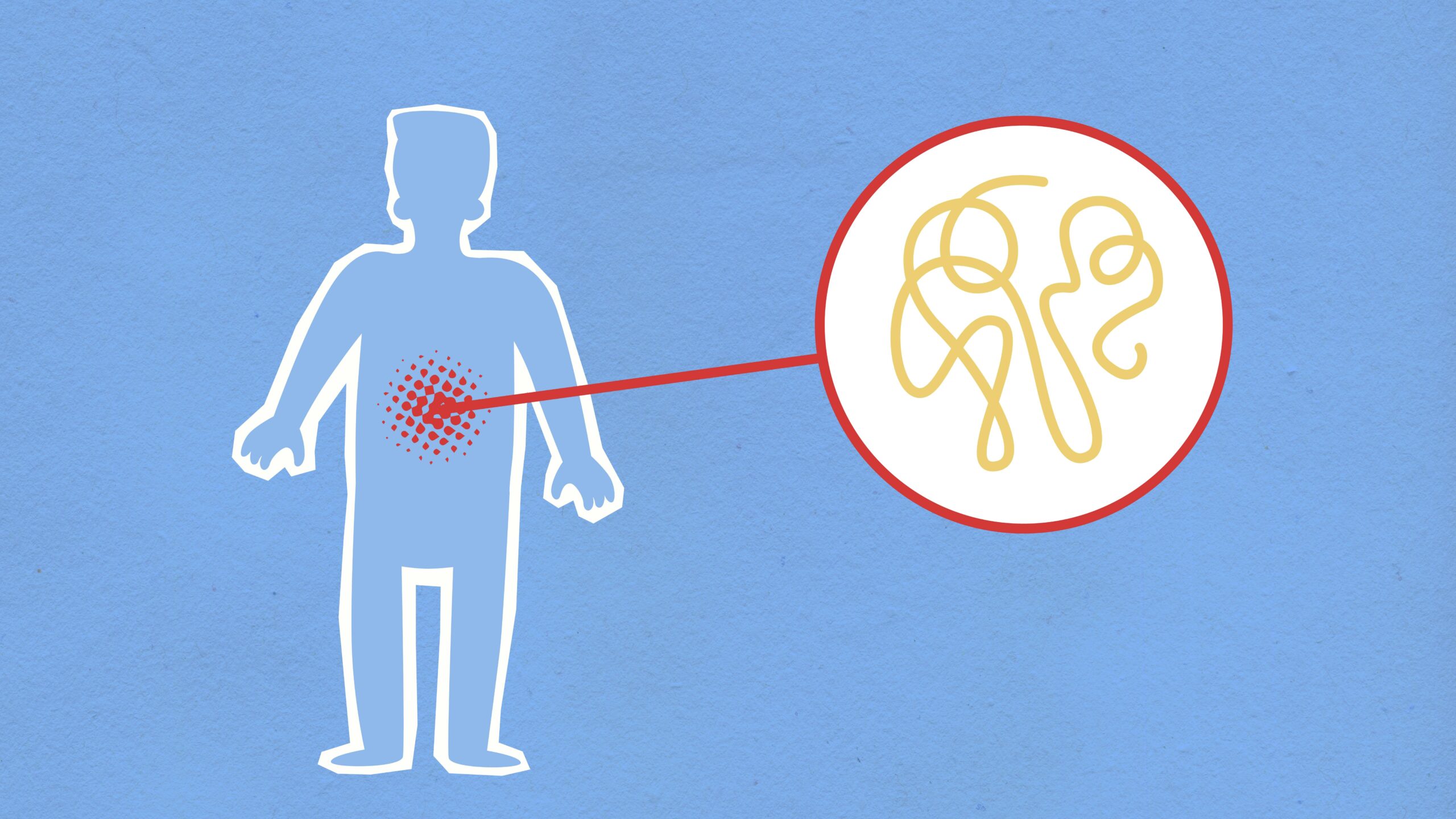Your body and mind are in constant conversation, shaping your health, performance, and longevity through sophisticated genetic responses you can learn to control.
🧬 The Revolutionary Science Behind Genetic Expression
For decades, scientists believed our genetic code was our destiny—an unchangeable blueprint written at birth. Today, cutting-edge research in epigenetics has shattered this myth, revealing that your daily experiences, thoughts, and behaviors can actually turn genes on or off without changing the underlying DNA sequence.
This field of study has uncovered something extraordinary: the vast majority of your health outcomes aren’t predetermined by your genes alone. Instead, your lifestyle choices, mental states, and physical behaviors send constant signals to your DNA, instructing it on which genes to express and which to silence.
The implications are staggering. You’re not a passive recipient of your genetic inheritance but an active participant in determining how those genes manifest in your life. This is where mind-body feedback loops become your most powerful tool for transformation.
Understanding the Mind-Body Feedback System
A feedback loop occurs when the output of a system circles back to influence the input, creating either virtuous cycles of improvement or vicious cycles of decline. In your body, these loops operate constantly at molecular, cellular, and systemic levels.
When you experience stress, your mind perceives a threat and signals your hypothalamus. This triggers a cascade of hormonal responses—cortisol floods your system, inflammation markers increase, and genes associated with stress response activate. If this becomes chronic, these activated genes can lead to premature aging, disease susceptibility, and cognitive decline.
Conversely, positive mental states and deliberate physical practices can activate genes associated with healing, regeneration, and enhanced performance. The beauty of understanding these loops is recognizing that you can consciously intervene at multiple points to shift the direction of the cycle.
The Molecular Messengers of Change
Your thoughts and actions don’t directly touch your DNA—they work through intermediary systems. Neurotransmitters, hormones, and cytokines act as molecular messengers that carry information from your experiences to your genetic material.
When you meditate, for instance, you reduce cortisol production while increasing beneficial compounds like brain-derived neurotrophic factor (BDNF). These chemical changes then influence transcription factors—proteins that bind to DNA and control which genes get transcribed into RNA and ultimately translated into proteins that build and regulate your body.
This means every meditation session, exercise routine, or moment of deep connection with others sends specific molecular signals that can optimize your genetic expression toward health and vitality.
💪 Physical Movement as Genetic Programming
Exercise represents one of the most powerful interventions for genetic optimization. When you engage in physical activity, you’re not just building muscle or improving cardiovascular fitness—you’re fundamentally reprogramming your genetic expression.
Studies have shown that a single bout of exercise can alter the expression of hundreds of genes. Regular physical activity activates genes involved in mitochondrial biogenesis (creating new cellular powerhouses), anti-inflammatory pathways, and cellular repair mechanisms.
Different types of exercise trigger distinct genetic responses. High-intensity interval training (HIIT) particularly excels at activating genes responsible for metabolic efficiency and cellular rejuvenation. Meanwhile, resistance training upregulates genes involved in protein synthesis and muscle growth, while endurance exercise enhances genes related to oxygen utilization and fat metabolism.
The Epigenetic Effects of Consistency
The true magic happens with consistency. While acute exercise provides immediate genetic signaling, regular training creates lasting epigenetic modifications—chemical tags attached to your DNA that make beneficial genes easier to activate in the future.
This explains why fitness improvements accelerate over time. Your body literally becomes more efficient at turning on the genes that support performance and adaptation. You’re training not just your muscles and cardiovascular system, but your genome itself.
🧘 Meditation and Mindfulness: Rewriting Genetic Expression
Perhaps nothing demonstrates the power of mind over genes more dramatically than meditation research. Studies using advanced genetic sequencing have revealed that regular meditation practice substantially alters gene expression patterns, particularly in genes related to inflammation, stress response, and immune function.
One landmark study found that just eight weeks of mindfulness meditation led to measurable changes in gene expression in immune cells. Genes involved in inflammatory responses were downregulated, while genes supporting immune function were enhanced.
The mechanism involves reducing activation of the sympathetic nervous system (fight-or-flight response) while enhancing parasympathetic activity (rest-and-digest). This shift in nervous system balance cascades through your endocrine and immune systems, ultimately reaching your genes.
Breathwork as a Genetic Switch
Controlled breathing practices offer another direct pathway to influence genetic expression. Techniques like box breathing, alternate nostril breathing, or extended exhale patterns directly affect your autonomic nervous system, which in turn influences genetic transcription.
Research has shown that specific breathing patterns can rapidly shift gene expression in real-time, particularly genes involved in oxidative stress response and cellular energy production. This makes breathwork one of the fastest-acting tools for genetic optimization.
🍽️ Nutritional Signaling to Your Genome
Every meal you eat sends powerful signals to your genes. Nutrients and bioactive compounds in food don’t just provide building blocks and energy—they act as information, instructing your DNA on how to respond.
Certain compounds, called nutrigenomic activators, have particularly strong effects on genetic expression. Sulforaphane from cruciferous vegetables activates detoxification genes. Resveratrol from grapes and berries turns on longevity genes. Omega-3 fatty acids from fish modulate inflammatory gene pathways.
The timing of eating also matters. Intermittent fasting and time-restricted feeding patterns activate genes involved in cellular cleanup processes (autophagy), stress resistance, and metabolic flexibility. These eating patterns essentially tell your genes to switch into maintenance and repair mode.
The Microbiome Connection
Your gut bacteria produce thousands of metabolites that directly influence gene expression throughout your body. A diverse, healthy microbiome generates short-chain fatty acids, neurotransmitter precursors, and signaling molecules that optimize genetic function.
This means that supporting your microbiome through prebiotic fiber, fermented foods, and dietary diversity creates a positive feedback loop: healthy bacteria produce beneficial compounds that activate genes supporting gut health, which in turn supports the bacteria.
😴 Sleep: The Master Regulator of Genetic Rhythm
Sleep isn’t merely rest—it’s when your body performs critical genetic housekeeping. Your circadian rhythm, the internal 24-hour clock, controls the expression of thousands of genes throughout the day and night.
During deep sleep, your brain clears metabolic waste products, your immune system consolidates learning from the day’s challenges, and your cells undergo repair processes guided by specific gene activation patterns. Disrupting sleep disrupts these essential genetic programs.
Chronic sleep deprivation has been shown to alter the expression of over 700 genes, including those involved in immunity, metabolism, inflammation, and stress response. Many of these changes persist even after catching up on sleep, suggesting lasting epigenetic modifications.
Optimizing your sleep-wake cycle aligns your genetic expression with natural circadian rhythms, creating coherence across all your body’s systems. This synchronization is fundamental to unlocking your full genetic potential.
🔥 Hormesis: Beneficial Stress as Genetic Catalyst
Not all stress is harmful. Short-term, manageable stressors—a concept called hormesis—actually optimize genetic expression by activating protective and adaptive genes. This includes exercise stress, cold exposure, heat exposure, and even certain dietary compounds.
When you expose yourself to controlled stress, you trigger genes that produce protective proteins like heat shock proteins and antioxidant enzymes. These proteins then protect you not just from the original stressor but from a wide range of potential threats—a phenomenon called cross-adaptation.
Cold exposure, for example, activates genes involved in brown fat production, mitochondrial biogenesis, and metabolic efficiency. Heat exposure through sauna use turns on heat shock protein genes that support cellular repair and protein folding. Both practices create positive feedback loops that enhance stress resilience over time.
Finding Your Hormetic Sweet Spot
The key to beneficial stress is intensity and duration. Too little provides insufficient stimulus; too much overwhelms recovery capacity. The sweet spot varies individually but generally involves brief, intense exposures with adequate recovery periods between sessions.
This principle applies across domains: high-intensity intervals rather than chronic cardio, periodic fasting rather than constant restriction, challenging cognitive tasks with rest periods rather than constant mental demand.
🧠 Neuroplasticity and Gene Expression: The Learning Loop
Learning new skills and exposing yourself to novel experiences triggers genetic changes in your brain that support neuroplasticity—the formation of new neural connections. This process involves activating immediate early genes that initiate a cascade leading to structural brain changes.
The feedback loop works beautifully here: challenging your brain activates plasticity genes, which create new neural pathways, which make future learning easier, which encourages more learning. This is why people who continuously learn throughout life maintain better cognitive function—they’re keeping their neuroplasticity genes active.
This isn’t limited to academic learning. Physical skills, artistic pursuits, social interactions, and navigating new environments all stimulate genetic programs supporting brain health and cognitive reserve.
💚 Social Connection and Genetic Flourishing
Humans are fundamentally social creatures, and our genes reflect this reality. Research has revealed that social isolation and loneliness trigger pro-inflammatory genetic pathways while suppressing immune function genes. Conversely, strong social connections and feelings of belonging activate genes associated with health and longevity.
The concept of “social genomics” explores how our social environment directly influences genetic expression. People with rich social networks show enhanced expression of genes involved in antiviral immunity while showing reduced expression of inflammatory genes linked to chronic disease.
Quality matters more than quantity. Deep, meaningful connections appear to provide more genetic benefit than numerous superficial relationships. The mechanism likely involves oxytocin and other social bonding hormones that serve as signals to your genome about your safety and security in your social environment.
🎯 Creating Your Personal Genetic Optimization Protocol
Understanding mind-body feedback loops empowers you to design a lifestyle that consistently signals your genes toward optimal expression. This isn’t about perfection but about creating positive momentum across multiple domains.
Start by identifying which feedback loops currently dominate your life. Are you stuck in negative cycles of stress, poor sleep, inactivity, and processed foods? Or are you building positive cycles of movement, recovery, nourishment, and growth?
The beautiful aspect of feedback loops is that small interventions at key leverage points can cascade through multiple systems. Adding a morning walk might improve your sleep, which enhances recovery, which makes exercise more effective, which further improves sleep—a virtuous cycle initiated by one simple action.
Practical Implementation Strategies
Begin with foundational practices that influence multiple genetic pathways simultaneously. These include establishing consistent sleep-wake times, incorporating daily movement, practicing stress management techniques, and eating whole foods with regular meal timing.
Layer in more specific interventions based on your goals and current limitations. If inflammation is a concern, emphasize anti-inflammatory foods and stress reduction. If cognitive performance matters most, prioritize learning, sleep quality, and cardiovascular exercise.
Track your interventions and responses. While you can’t directly measure genetic expression at home, you can monitor proxies like energy levels, sleep quality, workout performance, mood stability, and biomarkers from routine blood work.
🌟 The Compounding Power of Consistency
Perhaps the most important principle in genetic optimization is consistency over intensity. While dramatic interventions can provide short-term genetic signaling, lasting epigenetic modifications require sustained input over weeks, months, and years.
This is actually encouraging news—you don’t need extreme measures or perfect execution. You need reliable, consistent practices that accumulate genetic benefits over time. A modest daily meditation practice outperforms occasional intensive retreats. Regular moderate exercise trumps sporadic heroic efforts.
The feedback loops themselves support this consistency. As your practices improve your wellbeing, you feel better, which makes continuing the practices easier and more rewarding, which generates further benefits. You’re not fighting against your biology but working with its natural tendency toward homeostasis and adaptation.
🔬 The Future of Personalized Genetic Optimization
We’re entering an era where understanding your unique genetic makeup will enable increasingly personalized optimization strategies. Genetic testing can reveal which genes you carry variants of, suggesting which interventions might be most beneficial for your particular genome.
However, even without genetic testing, the fundamental principles remain universal. All humans share the basic mechanisms by which mind-body feedback loops influence genetic expression. The practices that optimize gene expression—movement, stress management, quality nutrition, sleep, social connection—benefit virtually everyone.
As research advances, we’ll gain more precise knowledge about which specific practices most effectively target particular genetic pathways. But the core insight remains revolutionary and actionable today: you have far more control over your genetic expression than previously imagined.

🚀 Activating Your Genetic Potential Today
The science of epigenetics and mind-body feedback loops transforms our understanding of human potential. You’re not limited by your genetic inheritance but empowered to influence how those genes express themselves throughout your lifetime.
Every choice you make—how you move, what you eat, how you manage stress, how you sleep, whom you connect with—sends signals to your genome. These signals accumulate, creating feedback loops that either limit or expand your capacity for health, performance, and longevity.
The power lies in recognizing that change doesn’t require dramatic overhauls or perfect execution. Small, consistent practices create momentum. One positive feedback loop supports another. Improvements in one area cascade through multiple systems.
Your genetic potential isn’t fixed—it’s dynamic, responsive, and waiting to be unlocked through the intentional use of mind-body feedback loops. The question isn’t whether you have the genetic capacity for greater health and performance, but whether you’ll provide the consistent signals that tell your genes to express that potential.
Start today with one simple practice. Notice how it makes you feel. Build on that foundation. Trust in the compounding power of consistency. Your genes are listening, ready to respond to the information you provide through your daily choices and experiences.
Toni Santos is a deep-biology researcher and conscious-evolution writer exploring how genes, microbes and synthetic life inform the future of awareness and adaptation. Through his investigations into bioinformatics, microbiome intelligence and engineered living systems, Toni examines how life itself becomes a field of awakening, design and possibility. Passionate about consciousness in biology and the evolution of living systems, Toni focuses on how life’s architecture invites insight, coherence and transformation. His work highlights the convergence of science, philosophy and emergent life — guiding readers toward a deeper encounter with their living world. Blending genetics, systems biology and evolutionary philosophy, Toni writes about the future of living systems — helping readers understand how life evolves through awareness, integration and design. His work is a tribute to: The intertwining of biology, consciousness and evolution The emergence of microbial intelligence within and around us The vision of life as designed, adaptive and self-aware Whether you are a scientist, thinker or evolving being, Toni Santos invites you to explore the biology of tomorrow — one gene, one microbe, one awakening at a time.




